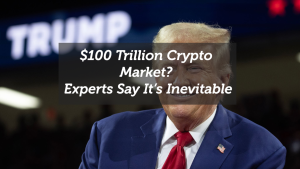
Donald Trump’s Journey: From Wealthy Upbringing to U.S. Presidency
Donald John Trump, the 45th President of the United States, has led a life filled with wealth, fame, ambition, and controversy. Known for his bold personality and polarizing leadership style, Trump’s journey from his privileged New York upbringing to the White House is as unique as it is remarkable. Here, we’ll look at the key milestones in Trump’s life, including his early years, rise in the business world, television fame, and surprising political ascent.
Early Life and Childhood
Donald Trump was born on June 14, 1946, in Queens, New York City, to Frederick C. Trump and Mary MacLeod Trump. His father, Fred Trump, was a successful real estate developer, and Donald grew up in the affluent neighborhood of Jamaica Estates, surrounded by opportunity.
From an early age, Trump showed a strong personality and fierce ambition. After attending the Kew-Forest School in Queens, he was sent to the New York Military Academy at age 13 to instill discipline. This experience played a critical role in shaping his leadership style, and he often cites his time at the academy as foundational to his character. Known for his competitiveness and assertiveness, Trump thrived in the structured environment, earning the respect of peers and mentors alike.
After graduating from the military academy, Trump attended Fordham University for two years before transferring to the Wharton School at the University of Pennsylvania, where he earned a degree in economics in 1968. His education at Wharton, widely regarded as one of the top business schools, provided him with a strong foundation for the ventures that would follow.
Early Adult Years and Business Ventures
Following his graduation, Donald joined his father’s real estate business, E. Trump & Son, which focused primarily on middle-class rental housing in Brooklyn, Queens, and Staten Island. However, Trump had much larger ambitions and soon began steering the company towards high-profile projects in Manhattan.
In 1971, he took control of the company and renamed it The Trump Organization. His first major deal in Manhattan was the transformation of the dilapidated Commodore Hotel into the Grand Hyatt Hotel, which opened in 1980. This deal marked Trump’s entry into the big leagues of New York City real estate and established him as a savvy and ambitious businessman.
Throughout the 1980s, Trump expanded his real estate empire, developing or acquiring several prominent properties, including the iconic Trump Tower on Fifth Avenue, luxury hotels, casinos, and golf courses. His career was marked by both successes and failures—notably, several of his Atlantic City casino ventures filed for bankruptcy. Despite these setbacks, Trump managed to maintain a high profile, carefully crafting a public image as a billionaire real estate mogul and master dealmaker.
Rise to Fame: Reality Television and Branding
In 2004, Trump took his personal brand to new heights with the debut of his reality TV show, “The Apprentice.” The show, which featured aspiring entrepreneurs competing for a chance to work for Trump, became a cultural phenomenon. His catchphrase, “You’re fired!” became widely recognized, and the show solidified his brand as a tough, business-savvy leader. It ran for over a decade, turning Trump into a household name across the United States.
Building on his television fame, Trump expanded his brand into various products and ventures, including Trump University, a controversial real estate education program, as well as clothing lines, fragrances, and other merchandise. While not all of his ventures were successful, his name became synonymous with luxury and success, a brand he would leverage in his eventual political career.
Political Career
Although Donald Trump flirted with politics for decades, he had little political experience before running for president. He had initially aligned with the Democratic Party but switched to the Republican Party in the early 2010s. In June 2015, he officially announced his candidacy for the 2016 presidential election, running on a platform of economic nationalism, immigration reform, and an “America First” foreign policy approach.
Trump’s campaign broke the mold, as he employed unconventional rhetoric and a willingness to challenge established political norms. His platform appealed to many working-class voters and stirred a powerful populist movement. Despite controversies, Trump gained a loyal following and defeated seasoned politicians in the Republican primary. In the general election, he faced off against former Secretary of State Hillary Clinton. Despite losing the popular vote, Trump won the Electoral College and became the 45th President of the United States on November 8, 2016.
Presidency: Policies and Controversies
As president, Trump implemented significant changes across various policy areas. He signed the Tax Cuts and Jobs Act of 2017, which lowered corporate tax rates and aimed to stimulate economic growth. His administration also focused on deregulation, rolling back numerous environmental and business regulations to encourage economic activity.
On the immigration front, Trump’s administration implemented strict policies, including the “zero tolerance” policy at the U.S.-Mexico border, which sparked controversy due to its separation of families. He also pursued a travel ban affecting several predominantly Muslim countries, which was met with legal challenges but ultimately upheld by the Supreme Court.
One of Trump’s most lasting impacts came through his judicial appointments, including three Supreme Court justices—Neil Gorsuch, Brett Kavanaugh, and Amy Coney Barrett—shifting the Court’s balance towards a conservative majority.
However, his presidency was marred by numerous controversies. Trump faced two impeachment trials: the first in 2019 over allegations of abuse of power in his dealings with Ukraine, and the second in 2021 following the Capitol riots on January 6. Although he was acquitted in both trials, these events polarized public opinion and further solidified his divisive legacy.
Post-Presidency and 2024 Election Bid
Since leaving office, Trump has continued to exert significant influence over the Republican Party and remains a polarizing figure in American politics. In 2024, he announced his bid to run for the presidency again, stirring speculation about the future of his political legacy and whether he can reclaim the White House.
The 2024 election is shaping up to be a pivotal moment for Trump, as he seeks to either solidify his influence or hand over the reins of his populist movement to a new leader. Trump’s potential re-election bid has sparked both excitement and apprehension, with many wondering how his policies and leadership style would evolve if given a second term.
Conclusion
Donald Trump’s life story is a testament to his resilience, ambition, and willingness to challenge norms. From his privileged beginnings in Queens, New York, to becoming a global icon in business and entertainment, and finally ascending to the White House, Trump has left an indelible mark on American society. His presidency was one of the most polarizing in modern history, reshaping the political landscape and igniting debates that continue to this day.
As he aims for a potential return to the White House in 2024, Trump’s journey is far from over. Whether you view him as a visionary leader or a divisive figure, there’s no denying that Donald Trump’s story is a remarkable reflection of modern American ambition and the changing face of U.S. politics. His legacy, for better or worse, will be studied for generations to come.
















